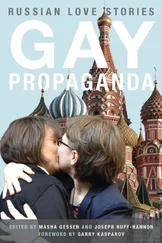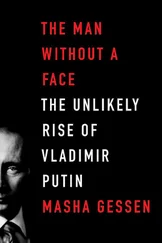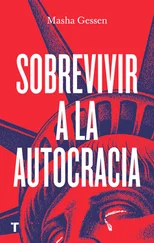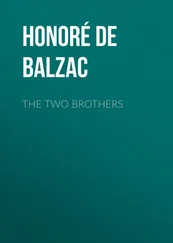Joanna Herlihy was the Tsarnaevs’ miracle. She was sixty-eight when they met—the youngest of her four children was roughly the same age as Anzor and Zubeidat—and for most of her adult life she had been trying to save the world. With a first marriage behind her, and once her children did not need her at home, she had joined the Peace Corps. She was a fixture of city politics in Cambridge, where she now lived. At the time Anzor and Zubeidat met her, she was taking care of one aging ex-husband (her second), and her grown children continued to drift in and out of her house.
She had bought the house in 1994 for the very low price of $45,000, at a foreclosure auction. It was what Bostonians call a three-family, a wooden three-story house with one long apartment on each floor. Three-families are common to the working-class neighborhoods—Dorchester, Jamaica Plain, Somerville. With postage-stamp-sized yards and on-street parking only, they used to represent cheap and unambitious city living. The house sat right on the Cambridge–Somerville city line, on the Cambridge side. It was modest even by three-family standards: it was built in the back of a shared lot and lacked the porches and small balconies typical of such buildings. When Joanna bought it, it was uninhabitable: it had not been heated, and the pipes had burst all over the house, causing extensive water damage. But it was also a three-apartment building in a city where property values were about to skyrocket: Cambridge would soon make every list of America’s overpriced cities. Over the next few years, Norfolk Street, which was an orphaned corner of Cambridge when Joanna bought the building, would shed its many junkyards and acquire more condominium complexes than a street so small could be expected to fit. She gradually replaced the plumbing and rectified the worst of the damage. She lived on the first floor, and eventually rented out the top two floors at below-market prices, ensuring that at least two units of Cambridge housing remained affordable.
Maret heard about the apartment from Khassan Baiev, who had probably heard about it from the journalist with whom he had written his memoir, a member of Cambridge’s loose network of Russophile intellectuals. Joanna had studied Russian at the University of Chicago, where she had earned her bachelor’s degree while still in her teens, like another precocious coed there, Susan Sontag. Joanna’s first husband was Alexander Lipson, a brilliant linguist and an inventive teacher of Russian who had taught out of their Cambridge home and taken his students, and his wife, by Volkswagen bus on tours of the entire Soviet Union, including Central Asia.
The third-floor apartment was not, strictly speaking, available for rent: the walls, which Joanna had repositioned, were unfinished. Maret, who was in charge of the negotiations, said the Tsarnaevs would happily finish the improvements themselves—they were just desperate for a place to live, now. They could have the apartment for eight hundred dollars, easily a third below the market rate. There were three bedrooms, all of them small, but Anzor and Zubeidat could move right in along with Maret and Alvi, even though they were likely soon to be joined by their children. Indeed, from the moment Joanna met the Tsarnaevs, she passionately wanted them to live in her home. She seemed—as they surely sensed—uniquely positioned to help them. She got them: she spoke Russian, she had seen where they came from, she had even studied Sufism. And she was primed to see the Tsarnaevs exactly as they wanted to be seen.
They presented themselves as having studied law. Anzor said he had worked in the prosecutor’s office. They were fleeing ethnic strife. They were clearly modern people, Zubeidat with her low-cut dresses and elaborate makeup, Anzor with his clean-shaven face and athlete’s body. That they were separated from their children—even Dzhokhar, whom they left at the Baievs’ for the moment, so as not to interrupt his schooling midyear—was a measure of the gravity of their situation. And they manifested an anger about the injustices of the world that was not unlike Joanna’s own. They were, as she was, at once profoundly disappointed by the world and stubbornly looking for a way to live on their own terms. Anzor and Zubeidat also saw a kindred spirit: a beautiful, odd bird. Joanna had the body and the physical energy of a woman half her age. She wore skirts and leather sandals, and her long hair was undyed—it still had some natural blond streaks in it. To the Tsarnaevs, who were always finely attuned to the aesthetics of their situation, to encounter in Joanna’s manner and appearance some of their own distinctiveness seemed fateful.
• • •
FOR ALLof Joanna’s commitment to community, when the Tsarnaevs arrived, the house was a collection of single, separate people. Two or three unmarried men from Tanzania lived on the second floor. Friends and acquaintances of Joanna and her children set up camp, often semipermanently, in this building and in another property she owned. Joanna kept power tools in the kitchen. Taking in all of that, and the coming and going of Joanna’s children, Zubeidat saw a woman who had a clan, much as the Chechens had clans, but who lacked the skills to manage it. Zubeidat started inviting the landlady up for tea. Gradually they started having communal meals. Zubeidat and Anzor told their stories. Joanna reacted with compassion and appropriate outrage and, often, proposed solutions.
Reinventing your own story is one of the benefits and requirements of immigration. It was natural and even right that Anzor and Zubeidat would skew and embellish their narrative to make it more intelligible and compelling to an American, and to gain a foothold at a higher station in their new life. Zubeidat said that she might apply to Harvard Law School. Joanna took her, along with Max Mazaev’s wife, Anna, to an Amnesty International event at which the Russian human-rights group Memorial presented its findings on Chechnya. Afterward, Zubeidat volunteered to translate some of the documents—a gesture that got her a Harvard Law School ID, though no pay. This affiliation did not last long: Zubeidat’s remarkable aptitude for languages made her an able interpreter, but she lacked the formal education that would have been required to translate human-rights documentation accurately. Joanna suggested a Harvard Extension School course on negotiation, and most likely paid for it. Zubeidat dropped the course after the unit on the Israeli–Palestinian conflict.
For Anzor, Zubeidat, Maret, and Alvi, it was a strange period of living as a family of adults, with all their children farmed out. Maret ran the household, taking charge even of her brothers’ work negotiations: she was a woman, yes, but she was the eldest—and then, this was not Chechnya. Dzhokhar was still staying at the Baievs’ and spent only the weekends at Norfolk Street, and the rest of Anzor and Zubeidat’s children, along with Alvi’s, were in Central Asia, waiting to be brought over. Most of Joanna’s conversations with the family focused on the mechanics of getting everyone to the United States. She tried to help Alvi’s wife, Zhanar, and their two children, Aindy and Luiza, get visas. The attempt failed, and soon after, Alvi divorced Zhanar and moved out of the house, starting a journey around the United States in search of a place where he would want to live; he eventually settled in Maryland. Back in Almaty, Ruslan, who was still taking care of Anzor and Zubeidat’s three older children, adopted Aindy. Ruslan’s own children were in Brighton, a Boston neighborhood, with their mother, who was about to give birth to a third child. Maret went to stay across the Charles River with them.
When the school year was over, Dzhokhar came to live with his parents on Norfolk Street. He was already a different kid. The Baievs were strict about speaking only Chechen in the house, and Dzhokhar had barely understood a word. The Baiev children—Maryam, who was Dzhokhar’s age, and Islam, who was a year younger—understood Dzhokhar when he spoke Russian but tended to switch into English whenever their parents were out of earshot. Before he left the Baiev house, Dzhokhar was already speaking English with the other kids—an extraordinarily fast accomplishment, even for an eight-year-old. He had also already become part of the community of Chechen seven-to-nine-year-olds in Boston: the Baiev kids, the Umarov kids, and the Mazaev kids, with whom he spent much of the summer of 2002, before entering third grade at a Cambridge public school. He would be bumped up to fourth grade before the school year was over.
Читать дальше












